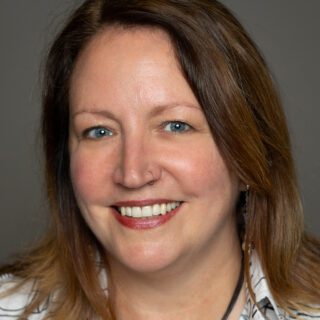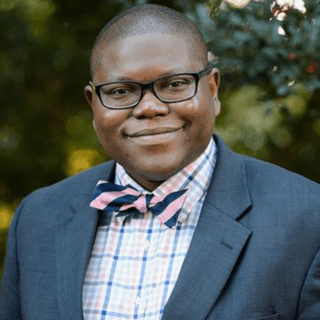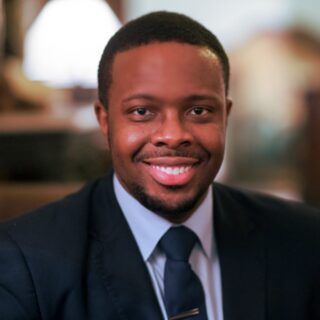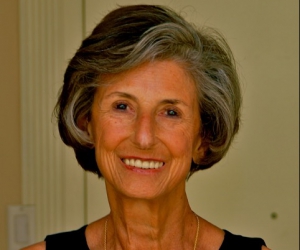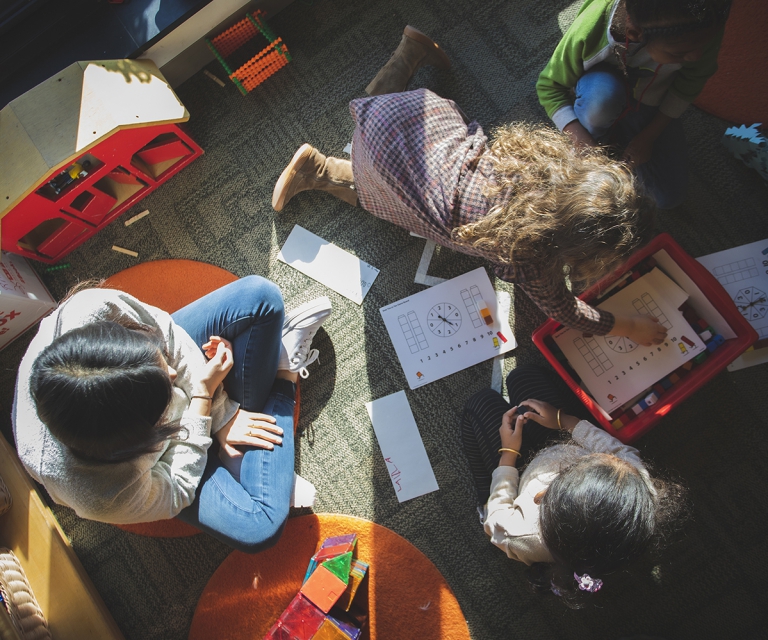
A Dream Partnership: Strengthening Research Collaborations at the Falk School
Conversations about building fruitful research partnerships between the University of Pittsburgh School of Education and the Fanny Edel Falk Laboratory School have been happening for years, according to interim Falk School Co-Director Jill Sarada.
“Falk is a school where we can try things out,” says Sarada. “As we do, we encourage reflection. We strive to approach learning by asking questions, gathering and considering the evidence, and thinking with the mindset and the tools that research provides us.”
This desire to facilitate more school-based research at Falk led to the establishment of a research coordinator role at the school in the 2021-22 academic year. Katrina Bartow Jacobs, associate professor of practice in the Pitt Education Department of Teaching, Learning, and Leading (TLL), is the first to take on the new role to help grow the collaboration between Falk teachers and Pitt Education researchers.
“Having done research at Falk and being a parent there, I’ve heard again and again from teachers that this research is something they want to do but they often don’t have the direction or time,” says Jacobs. “The desire was there, but they needed someone whose job it is to do this.”
Founded in 1931, Falk is an independent K-8 laboratory school located on Pitt’s campus. The progressive, experimental school enrolls about 430 students and is part of the School of Education.
In spring 2021, Jacobs approached Sabina Vaught, professor and inaugural department chair of TLL, with the idea to establish the role to serve as Falk’s in-house research expert. As a researcher with experience as a classroom teacher, Jacobs sees this opportunity as beneficial to both Falk teachers and Pitt Education faculty members.
“For us, this ties into the School of Education’s mission-vision, particularly learning with and from communities,” says Jacobs.
A Focus on Teacher-Led Research
When Jacobs started the role in September 2021, one of the first things she did was survey Falk’s teachers to understand how they envision this partnership unfolding and what questions they would like to investigate.
“This is a way to model and practice what it looks like to deeply engage educators as partners in research,” says Jacobs. “For me, it’s about valuing the knowledge of these amazing professionals who, day in and day out, are trying to do what’s best for their students. That’s necessary for us to implement truly equitable educational opportunities.”
“I’m seeing things that used to just live as problems for teachers actually become opportunities,” says Sarada. “Having someone there to collect data, make observations, ask questions, and dive deeper into problems helps them attack issues in a different way.”
Valerie Rossi, who teaches middle school Spanish at Falk, has been working with Jacobs on preparing students for assessments of their language proficiency.
“One of the first things I said to Katrina is I have some students who aren’t doing great on assessments,” says Rossi. “In class, they’re fully engaged, doing good work, participating, but when the assessment comes, they don’t do well.”
Jacobs and Rossi worked together to consider how to use classwork and homework to integrate Rossi’s interactive teaching philosophy and her goal to have students ready to transition to high school. By revising a commonly used rubric and supporting students through more independent practice for these assessments, Rossi saw grades improve and students’ sense of success rise as well.
“The kids were getting the opportunity to see what they know, understand, and can do on their own,” says Rossi. “It helped their self-reflection and personal understanding, but it also helped me see who needs more support.”
Rossi calls this collaboration a “dream partnership.”
“We bring different perspectives and have different experiences,” she says. “It’s really helping my teaching practice and it’s helping the students learn, as well.
Opening New Doors
Katie Spence, a first-grade teacher at Falk, has also been working with Jacobs to conduct research in her classroom.
“Being involved in this research opportunity is really special,” says Spence. “It opens a lot of doors to think about where we can go or what we can do next within social-emotional learning.”
With support from Jacobs, she began teaching social-emotional lessons to help students with topics like asking for space and working through frustration.
When students address these topics, Spence monitors and records examples of the students practicing the skills they learned.
“The intention and hope for this research is to provide language and skills for each child to work through these different scenarios if and when they occur naturally in their lives,” says Spence.
Expanding Opportunities for Teachers and Researchers
Sarada says these research endeavors present ways for Falk teachers to grow and improve their professional knowledge.
“It invites them to go beyond just sitting with something, into learning about it and changing it,” says Sarada. “When you start to understand the many complexities of a problem by investigating it, you can begin to make small changes that improve practice and experiences for kids.”
Jacobs and Sarada hope the renewed focus on research will provide new opportunities for teachers to present at conferences, publish research in journals, and more.
“Our long-term goal is not just to be doing research for the sake of better teaching at Falk but also expanding the work and using it as a voice for teacher professionalism,” says Jacobs.
While her first year as research coordinator focused on introducing a culture of research to Falk teachers, Jacobs plans to engage more Pitt Education faculty members in the work in the near future.
“My hope is for more collaborations between teachers and faculty, and that I can begin to look at questions emerging school-wide and tapping specific faculty members for help working through them,” says Jacobs.
She adds: “There’s a shared belief that this is about learning and growing together, and redefining what it means to be a laboratory school.”

